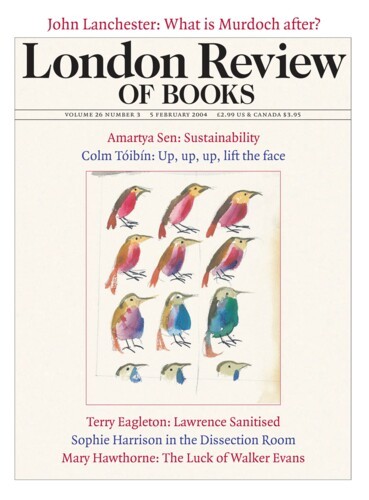Why We Should Preserve the Spotted Owl: Sustainability
Amartya Sen, 5 February 2004
“When, early in 2001, President Bush abruptly abandoned the environmental agreement arrived at in Kyoto (the so-called Kyoto Protocol), a CNN/Time opinion poll indicated that a large majority of the American public took a very different view from the President. Yet there was hardly any serious attempt by the US government to take note of public opinion in the making of policy, or to draw citizens into discussion . . . we must recognise . . . that blocking opportunities for informed participation is itself a significant loss of freedom, and that this is already occurring. Something has failed to be sustained – right now.”




